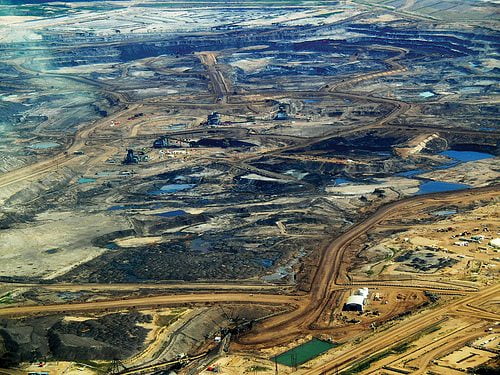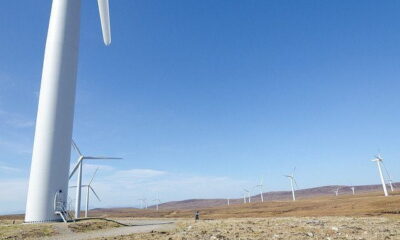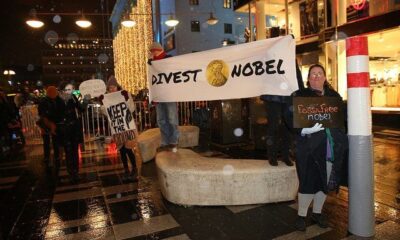

Environment
UK Councils Invest Over £53 Million In Polluting Tar Sands Company
As the Canadian tar sands have come over increasing pressure over the last week, divestment campaigners have criticised the 23 local council pension funds in the UK invested in Suncor – one of the biggest stakeholders in the controversial oil exploration project.
Last week saw Obama’s rejection of the Keystone XL pipeline and four days of sit-ins outside the newly sworn in Canadian Prime Minister’s Residence calling for a freeze on tar sands expansion.
A total of £53 million is invested in the tar sands giant by UK councils, with Hampshire and West Sussex County Pension Funds investing the most at £9.9 million and £6.8 million respectively.
Sam Martin, from local campaign Divest Bexley, commented: “The tar sands are a red line for the climate – we know that this polluting energy source simply cannot be burned if we are to keep in line with global climate change targets. We need to keep 80% of known fossil fuels in the ground, starting with polluting projects like the tar sands. Our councils’ investments in Suncor are investments in destruction; it’s time they divested from this risky business, and from dirty energy altogether.”
The tar sands are a particularly polluting energy source, producing four times more greenhouse gas emissions than conventional oil extraction. Their exploitation has also led to mass deforestation and significant pollution of the water supply. Suncor has been fined on multiple occasions for dumping untreated waste water, leakage, not monitoring pollution and emissions exceeding regulations.
Tar sands projects have also been widely criticised for the violation of the rights of Canadian indigenous peoples; in 2008, the Beaver Lake Cree Nation filed a lawsuit against the Canadian and Albertan governments over the development of the tar sands. This week has also seen mass acts of civil disobedience in Canada protesting tar sands expansion.
Investment in the tar sands is also financially risky. A report released by Carbon Tracker in 2014 highlighted that investors face significant risk in the next decade as high oil prices of more than $95 a barrel are needed for the tar sands to be profitable. Suncor itself has also faced recent financial difficulties, posting losses of nearly $300 million dollars this quarter.
With the major pipelines required to make tar sands equitable under threat following Obama’s rejection of the Keystone XL, tar sands assets may also soon be literally stranded as expansion is impossible without new pipeline infrastructure. This month, Shell announced it was shelving its Carmon Creek tar sands project at a cost of billions of dollars, citing “uncertainties.”
Ellen Gibson from 350.org commented: “Exploitation of the Canadian tar sands is not compatible with a liveable planet, and investment in such an industry represents a serious financial risk to workers’ money. Our local authorities must stand up for pension fund members by divesting from Suncor’s unsustainable business model and the fossil fuel industry altogether.”


 Features9 months ago
Features9 months agoWhat is the Eco-Friendliest Option to Wash Your Dishes?

 Environment12 months ago
Environment12 months agoBuilding a Career in Green Construction: Tips and Insights

 News11 months ago
News11 months ago5 Ways Fleet Maintenance Software Can Help Businesses Be More Eco-Friendly

 Features10 months ago
Features10 months agoAddressing Pressing Ethical Concerns with Crypto Exchanges





























